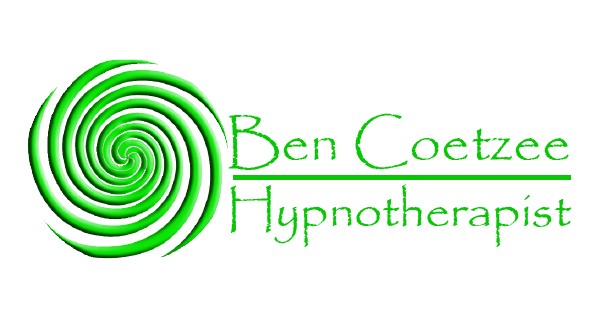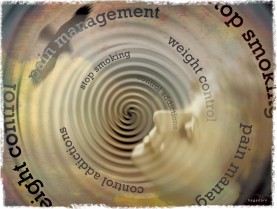Ben Coetzee Hypnotherapist

| Monday | 09:00 am - 08:00 pm |
|
| Tuesday | 09:00 am - 08:00 pm |
|
| Wednesday | 09:00 am - 08:00 pm |
|
| Thursday | 09:00 am - 08:00 pm |
|
| Friday | 09:00 am - 08:00 pm |
|
| Saturday | 09:00 am - 01:00 pm |
|
| Sunday | Closed |
|
| Public Holidays | Closed |
|
REVIEWS
PHOTO GALLERY
ABOUT US
My own journey into hypnotherapy began in 1994 as a means of helping me deal with my own personal problems at the time.
This journey lead me to discover the 'Power of the Mind' and through hypnosis, I try to help and assist those wanting to reach goals they have set for themselves.
Qualifications & experience:
I am a practicing registered hypnotherapist of 20 years and my qualifications include:
- Member of the British School of Yoga (Hypnotherapy) - 1994
- Associate Member of the South African Association of Hypnotists - 1995
- Associate Member of the South African Association of Professional Stage Hypnotists - 1996
- Certified Hypnotherapist South African Association of
- Hypnotists - 1996 Honourary Member Eastern Cape School of Hypnotists - 1996
SERVICES
What is hypnosis?
To understand how hypnosis works a person should start by looking at the brain and it's functioning. The brain has two totally separate units known as a conscious and a sub-conscious.
The conscious
This is the little voice that is always with you, keeping you company 24 hours a day. It is the little voice which tells you when you are doing something right or wrong.
The subconscious
This part of your brain contains all emotions, thought, intelligence and memory. Every imagined idea is stored within. The subconscious also controls our daily activities necessary for life such as breathing, heart beat and digestion.
To place this in better context, imagine your brain as a large dark room stored with tons of items ranging in size. Your conscious would be a torch lighting up one of these items, although the other items will not be visible, they will still be there. Your subconscious would therefore be the big room.
We are exposed to tons of information and various sensory observations daily. It is our subconscious which gives meaning to this information, we get an edited version of what our subconscious experiences.
To test this theory place a tape recorder at the next party you attend and listen to the tape afterwards. All the sound will be a babble of noises, yet at the party, you were aware of the conversations going on around you. If somebody called you from across the room, your subconscious would have reacted and drawn your attention. Hypnosis is the tool we use to access the subconscious mind in order to aid, help or guide a person who is seeking attention.
What does it feel like to be hypnotised?
Most people find it strange not to experience anything at all while hypnotised. As we are all individuals, it is just logical that our perceptions of trance would also vary greatly. There is also the problem of people having a preconceived notion of what is should feel like to be in a trance, and when they awake, they believe that they were not hypnotised.
How would I know if I was really hypnotised?
Here are just some of the tell tale signs which tell one they are hypnotised. Although you will be experiencing some of these feelings, they don't all have to be present to indicate hypnosis; as a matter of face it is highly unlikely you would ever experience all of these:
- Fixed thoughts – you become fascinated by a thought or object
- Time distortion – an hour seems like 5 minutes
- Effortlessness – images appear and disappear without any effort from you
- Amnesia – some people find they experience a partial or complete memory loss while hypnotised. Most people however find they recall everything until told what they have been doing to realize some memory distortion has taken place
- Sensory awareness – sounds become louder, crisper or quieter and feelings might become clearer or even quieter
Externally:
- Muscle changes – a feeling of relaxation over your entire body
- Eyes – a rapid twitching of the eyelids take place. This is known as Rapid Eye Movement and is an indicator of a change in brainwaves
- Breathing – one or two change take place, either slowing of breathing
Some misconceptions & frequently asked questions
1.Hypnotists are born with certain powers!
Hypnotists have no gift nor will they ever! If any hypnotist tells you he has a certain power, run like mad. Hypnosis has been proven to be a series of psychological processes and suggestions which any normal person can learn. The main skill of the hypnotist is to instil confidence and trust.
2.Hypnotists can make people do things against their will!
Hypnosis cannot be used as a tool to aid immoral acts. The hypnotised subject will never go against his or her own set of moral values and ethical codes. At the same time due to the fact that the hypnotised subject does not lose memory, one can continue making decision. In the event of an unethical suggestion being given, the subjects will either wake up or ignore the suggestion in total. Stage shows should be structured in such a way that we never go against people's morals.
3.Hypnosis is anti-Christian!
This misconception of linking hypnosis with Satanism comes from the fear of the unknown. Many people believe that if a person loses control over him or herself they are therefore open to evil influences from outside. Once again based on the myth of control loss, once a person experiences hypnosis, they realize that the control is with them.
4.Hypnosis is a cure all!
Unfortunately this is not true. Hypnosis does not always work, neither can it be used to cure all problems. Yet hypnosis is certainly modern medicine's biggest asset.
5.Only weak willed/unintelligent people can be hypnotised
People experience natural trance during their daily activities. Think of the last time you home and noticed the distance went past without you realizing you drove that distance. Everybody can experience hypnotic trances, but factors such as the hypnotist's competence, time and willingness of the hypnotised subject, plays an important role in the hypnotic process.
6.Will I reveal my deepest secrets?
Hypnosis has never been used as a truth serum and it is very possible for a hypnotised person to lie. Due to the fact that you still have full control as well as memory retention during the process, you would be able to avoid bearing your soul, should it arise.
7.What about people not waking up?
There has never been a person in history of the world that has not woken up from a hypnotic trance. Should the hypnotist leave the room or even die, the subject will go into normal sleep and awaken a few minutes later, feeling great and refreshed. You will find a number of therapists prefer not to wake their subjects, but allow them to come out of trance in their own time.
8.Does the hypnotist gain control over a person for the rest of their lives?
Hypnosis is a conscious decision process and requires the co-operation of the subject. It is therefore impossible for a hypnotist to place one to sleep when he feels like it.
9.Hypnosis is dangerous and should be practised by medical professional only?
If you have the flu you see a doctor, a tooth ache you see a dentist. It therefore stands to reason that if you need hypnotic treatment for a medical or psychological ailment you see a HYPNOTHERAPIST. There is no danger in hypnosis, other than lay practitioners or non-trained hypnotists could leave a suggestion or cause one to lose faith in hypnosis due to the hypnotist's inability to hypnotise or treat the given problem correctly. Always request the hypnotist to show you his qualifications and make sure that he knows the nature and treatment for your problem. If ever in doubt seek help from a medically qualified Hypnotherapist.
10.What is self hypnosis?
It is possible for a person to hypnotise themselves. Through a process of suggestion and progressive relaxation techniques. This form of hypnosis is mainly practised for relaxation and positive upliftment reasons. A qualified hypnotist would be able to teach one the basic skills needed to reach this altered state.
11.How do I stop smoking, nail biting or lose weight?
The most important part is your own willingness and effort. By starting with a determined attitude it would be possible for you to successfully rid yourself of your unwanted habits. Care should be taken in realising that the success of hypnosis is directly related to you own willingness to succeed. Therapy could last between 4 and 5 sessions.
12.Where do I learn hypnosis?
There are various schools which teach hypnosis and hypnotherapy. The best would be to contact a number of these schools and identify the best course for your own personal needs. Take note that certain regulations exist regarding the therapeutic use of hypnosis within South Africa.
MEET THE TEAM
| Ben Coetzee |














